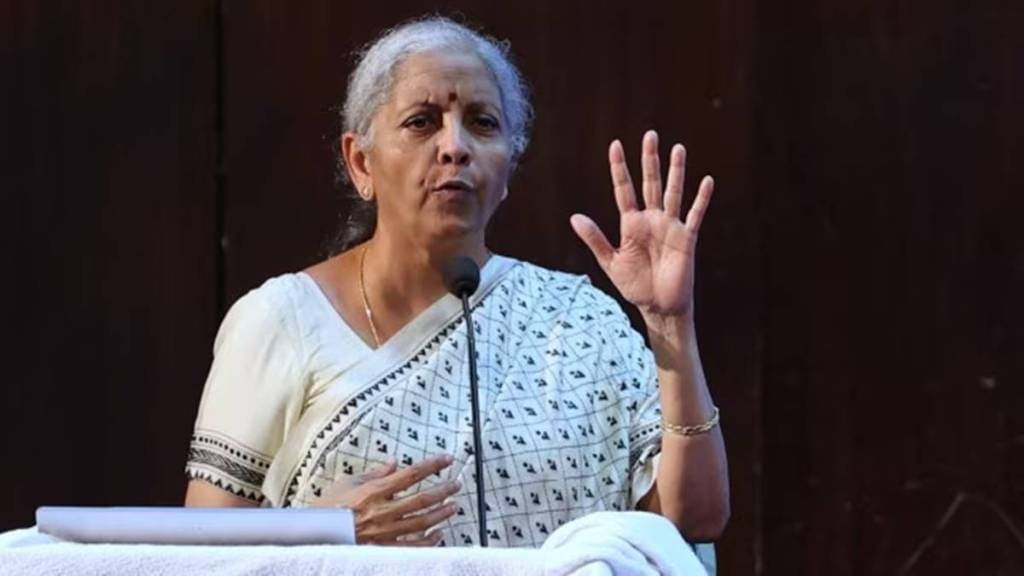The next-generation Goods and Service Tax (GST) reforms unveiled late September have brought about the desired price reductions for essential items and goods consumed by the middle-class in the ongoing festive season, laying the foundation for sustained consumption and investment growth, Finance Minister Nirmala Sitharaman said on Saturday.
“GST rate reductions have increased purchases. We are convinced that on every such item (where the tax has been reduced) , benefits are being passed on by companies,” Sitharaman said. In the case of some items like air conditioners, television sets, and toys, businesses have even passed on to consumers benefits higher than weighted-average GST cuts, the minister said.
“It (GST reform) is something which is going to benefit every consumer on a day-to-day basis and even on those rare once-in-a-couple-of-years purchases, like AC or better digital television and so on,” she said. “So, it (consumption increase) will sustain. The consumption story will continue.”
Electronics, I&B and Railways minister Ashwini Vaishnaw said the GST cuts, along with other factors, would lead to over 10% growth in consumption (private final consumption expenditure or PFCE in nominal terms) in FY26. The PFCE was Rs 202 lakh crore in FY25, accounting for 61% of the Gross Domestic Product (GDP).
“Because of GST reforms, consumption will be significantly increasing and consumption will increase more than 10% this year. This means more than Rs 20 lakh crore extra consumption expected compared to last year,” Vaishnaw said, adding it will also increase private investment significantly.
India’s nominal GDP grew 9.8% in FY25, while PFCF at current prices grew 11.95%. In real terms, the GDP growth came in at a four-year low of 6.5% last fiscal, while PFCF at constant prices rose 7.2%.
The Reserve Bank of India on October 1 revised GDP growth projection for the current fiscal year to 6.8%.
The GST Council approved the proposals to cut rates for about 380 items in its 56th meeting in early September, and the changes took effect from September 22 (Navaratri) to benefit consumers ahead of the festive season.
The GST rate structure was simplified from four-slabs one (5%, 12%, 18%, 28%) to two slabs (5% and 18%), with a special 40% reserved for a handful of ultra-luxury/sin goods.
The finance ministry has estimated a tax reduction of around Rs 2.5 lakh crore for households, including income tax measures announced in the Budget for FY26, giving the economy a consumption boost amid US tariff headwinds for Indian exporters.
Sitharaman said that since September 22, the government has been receiving information from the zonal levels on all items.
“However, we have been closely monitoring the prices of 54 products to ensure that the benefits of the revised tax structure are reaching the end consumers. The Next-Gen GST benefits have been fully passed on across all 54 items,” she said.
Some items, including Portland cement, however, did not see price cuts to the extent expected. “So, except for the Portland variety of cement of one or two brands, all cement companies have reduced prices,” she said, adding that on items which did not see the desired level of price cuts, the government will reach out to them to do so.
Sharing data, the finance ministry said in Delhi festive sales are estimated at Rs 75,000 crore, while Ahmedabad’s cotton fabric demand is up nearly 10% after GST cuts on garments under Rs 2,500.
India’s automobile industry has seen its best Navratri performance in a decade. The ministry said Maruti Suzuki doubled its sales from last year, delivering 1.65 lakh cars in just eight days, including a record 30,000 vehicles on Ashtami alone, the highest single-day figure in 35 years. Mahindra & Mahindra saw a 60% surge in SUV sales, led by the XUV700 and Scorpio N.
Tata Motors retailed over 50,000 vehicles, while Hyundai’s SUVs (Creta and Venue) now make up 72% of its total sales. Two-wheeler majors like Hero MotoCorp and Bajaj Auto reported double the showroom footfall compared to last year.
Sitharaman said the Department of Consumer Affairs has received 3,169 complaints related to non-reduction in prices commensurate with the GST cut. Of this, 3,075 complaints have been forwarded to nodal officers in the Central Board of Indirect Taxes and Customs (CBIC). The consumer affairs department has resolved 94 complaints on its own.

